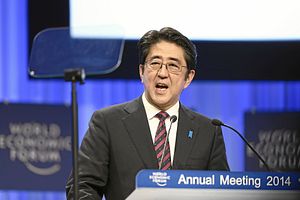On October 23, Tokyo and Fukuoka residents will go to the polls in dual by-elections. Campaigning for the two races kicked off on October 11.
Tokyo No. 10 district will be electing a successor for Yuriko Koike, who was elected Tokyo governor in July. The ruling Liberal Democratic Party (LDP)-Komeito coalition is backing Masaru Wakasa in this election. Opposition parties, including the Democratic Party (DP) and the Japanese Communist Party (JCP), have united behind Yosuke Suzuki.
Fukuoka No. 6 district is replacing Kunio Hatoyama, who passed away in June. In Fukuoka, the LDP failed to pick a banner carrier as Chief Cabinet Secretary Yoshihide Suga and Finance Minsiter Taro Aso backed different candidates. If Jiro Hatoyama or Ken Kurauchi win, they will retroactively be given the party’s endorsement. They are running against the DP-backed Fumiko Arai.
The elections are likely to focus on income inequality, the dismal performance of the much-touted Abenomics, and the Trans-Pacific Partnership (TPP) – which the ruling party has committed to ratifying this Diet session.
These two races are being closely watched for three reasons.
First, these are the first national elections for the DP after Renho was elected leader of the party. How the DP candidates do will shape public perceptions of her efficacy and determine her ability to unite the DP after early stumbles related to party appointments.
Second, and more importantly, if LDP candidates secure a double-victory in Tokyo and Fukuoka, Prime Minister Shinzo Abe might be emboldened to dissolve the Lower House in January. Though Abe is not obligated to hold another Lower House election until December 2018, Abe might conclude he should take advantage of the party’s current popularity and momentum with a snap election. A January election would build on the general public’s discontent with opposition parties that handed the LDP their Upper House victory last July.
Though rumors have been beaten down, on October 10, LDP secretary general Toshihiro Nikai remarked, “It would be appropriate to say the wind of an election has now started blowing.” Party leaders across the political spectrum will be watching the outcomes of these elections extremely closely.
If Abe can deliver some sort of tangible progress in Russo-Japanese ties this December following Russian President Vladimir Putin’s visit, the LDP can also expect a significant boost from that.
Third, another resounding LDP victory would make it easier for Abe to remain in power as LDP president and Japan’s prime minister beyond September 2018. Under current party rules, Abe must give up the party presidency then, when his second consecutive three-year term comes to an end. However, if proposed changes are adopted as expected in March 2017, Abe could remain on the global stage longer than anyone expected him to when he first declared, “Japan is back” in February 2013.

































